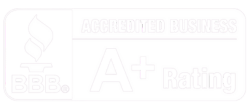

See What You Pre-Qualify For
Applying is free. No obligation to accept. No impact on your credit score. Take what you need today, access more later.
- 3+ Years in Business Required
- $100K+ Annual Revenue Required
- 640+ FICO® Score Required


Types of Business Loans
Business Loans FAQs
What are the different types of business loans available?
There are several types of business loans available to entrepreneurs, each designed to meet different financial needs. Term loans are perhaps the most common, providing a lump sum of capital that you repay with interest over a set period. Lines of credit offer more flexibility, allowing businesses to borrow up to a certain limit and pay interest only on the amount borrowed. For those requiring quick cash for small-scale needs, short-term loans typically offer fast funding with shorter repayment periods. Equipment financing loans are tailored for purchasing business equipment, using the equipment itself as collateral. Invoice financing allows businesses to borrow against unpaid invoices, providing immediate cash flow while awaiting customer payments. Additionally, Small Business Administration (SBA) loans are a popular option due to their generally favorable terms, given that they are partly guaranteed by the government. Each loan type has its own qualifications and implications, so businesses must carefully consider which aligns best with their financial objectives and capabilities.
How do you qualify for a business loan?
Qualifying for a business loan involves several key steps and requirements that applicants must carefully navigate. First, lenders typically look for a solid business plan that outlines the company's goals, financial projections, and strategies for success, providing confidence in the applicant's ability to repay the loan. Additionally, having a strong personal and business credit history is crucial, as lenders use these scores to gauge financial responsibility and creditworthiness. Financial documentation, such as tax returns, profit and loss statements, and balance sheets, may also be required to verify the business's financial health. Collateral might be necessary to secure the loan, providing lenders with an asset they can claim if the loan is not repaid. Lastly, lenders often assess the owner's experience in the industry, as well as their personal financial situation, to determine their capability to manage and grow the business successfully. By fulfilling these criteria, a business owner can enhance their chances of qualifying for a business loan.
What are the typical interest rates for business loans?
The typical interest rates for business loans can vary widely based on several factors, including the creditworthiness of the borrower, the type of lender, the nature of the loan, and the current economic climate. Generally, for traditional bank loans, interest rates can range from around 3% to 13%. However, alternative lenders, such as online lenders, may offer quicker funding but often at higher rates, sometimes ranging from 7% to 30% or more. Factors such as the size of the loan, the term length, and whether the loan is secured or unsecured also play pivotal roles in determining the interest rate. Additionally, Small Business Administration (SBA) loans typically offer lower rates than other types of loans, often within the range of 5% to 10%. It's essential for businesses to shop around and thoroughly understand all terms and conditions before committing to a loan, as the interest rate will significantly affect the overall cost of the loan over its lifetime.
How can a business loan help grow my company?
A business loan can be a crucial catalyst for growth, providing the necessary capital to scale operations, invest in new technology, or expand product lines. With an influx of funds, a company can hire additional staff to improve productivity and customer service, or acquire equipment and inventory that enhance operational efficiency. Furthermore, a loan can facilitate marketing efforts to reach a broader audience, thereby increasing brand visibility and revenue potential. By alleviating short-term cash flow concerns, a business loan allows management to focus on strategic planning and innovation instead of day-to-day financial pressures. Thus, with the right loan structure and terms, businesses can achieve sustainable growth while strengthening their competitive position in the market.
What documents are needed to apply for a business loan?
When applying for a business loan, several essential documents are typically required to assess the financial health and viability of the business. First, a well-prepared business plan is crucial, detailing the company’s goals, market analysis, and financial projections. Financial statements such as profit and loss statements, balance sheets, and cash flow statements from the past few years are often necessary to provide a comprehensive view of the business’s financial status. Additionally, personal and business credit reports can play a significant role in the approval process. Lenders may also request recent tax returns for both the business and its owners to verify income and financial stability. Furthermore, legal documents such as business licenses, articles of incorporation, or partnership agreements may be needed to confirm the legal standing of the business. Finally, a detailed list of collateral, if required, and an explanation of how the loan will be used are also important components in the application process.
What is a business line of credit and how does it work?
A business line of credit is a flexible financial tool that provides businesses with access to a predetermined amount of capital that they can draw from as needed. Unlike a traditional loan, where the business receives a lump sum of money upfront, a line of credit operates similarly to a credit card, where funds can be borrowed up to a specified limit and interest is only paid on the amount borrowed. This type of credit is typically used for short-term financing needs, such as managing cash flow, purchasing inventory, or addressing unexpected expenses. The repayment terms can vary, but generally, businesses are required to make minimum monthly payments on the outstanding balance. Once the borrowed funds are repaid, the credit becomes available again for future use, making it a convenient option for businesses needing periodic access to funds without having to apply for a new loan each time.
How can a business line of credit benefit a small business?
A business line of credit can significantly benefit a small business by providing flexible access to funds, which can be crucial for managing cash flow and handling unexpected expenses. Unlike a traditional loan, a line of credit allows a business owner to borrow only what is needed up to a pre-approved limit and pay interest only on the amount drawn, offering a more efficient way to manage finances. This flexibility can help small businesses capitalize on opportunities such as expanding operations, purchasing inventory, or launching marketing campaigns without the strain of securing additional financing. Additionally, consistently managing and repaying a line of credit can build a solid credit history, potentially improving the business's creditworthiness and access to larger financing options in the future.
What are the typical requirements to qualify for a business line of credit?
To qualify for a business line of credit, there are several typical requirements that businesses generally need to meet. Firstly, lenders often look for a good credit score, both personal and business, as it indicates the borrower's reliability in repaying debts. A solid credit score demonstrates financial responsibility and can improve the likelihood of approval. Additionally, lenders typically require a stable and sufficient business revenue stream to ensure the company can repay borrowed funds. Businesses may need to provide financial statements, tax returns, and bank statements as evidence of their financial health and revenue consistency. Time in business is also a key factor, with many lenders preferring firms with at least one to two years of operational history to demonstrate stability and success. Furthermore, lenders might ask for collateral or a personal guarantee, especially for larger credit lines, to secure the debt in case of default. While specific criteria can vary depending on the lender and the size of the line of credit, these are some of the common prerequisites that businesses need to meet to qualify for this flexible financing option.
How is the interest rate determined for a business line of credit?
The interest rate for a business line of credit is determined by several factors, including the overall creditworthiness of the business, prevailing market interest rates, and the specific terms set by the lender. Lenders assess the business's credit score, financial history, and revenue stability to gauge the risk involved in extending credit. In addition, market conditions, such as the federal funds rate set by central banks, can influence the base rates that lenders offer. The lender may also consider industry-specific risks, the amount of credit requested, and the business's relationship with the bank. Factors like collateral offered and the flexibility of credit line terms can also play a role. Collectively, these elements are evaluated to decide the specific interest rate for a business line of credit, balancing risk and return for the lender.
Can a business line of credit be used for any type of business expense?
A business line of credit can generally be used for a wide variety of business expenses, making it a versatile financial tool for enterprises. It provides businesses with flexible access to funds, which can be utilized for both anticipated and unexpected costs, such as purchasing inventory, covering payroll, or managing cash flow during slow periods. However, while it offers significant freedom compared to other financing options, it's crucial to review the specific terms and conditions set by the lending institution. Some lenders may impose restrictions on certain types of expenditures, or require detailed documentation of how the funds are utilized. Responsible use of a line of credit involves ensuring that the capital is used in a manner that supports the growth and sustainability of the business, rather than for non-business-related or speculative purposes.
What Are Business Loans?
Business loans are financial products designed to provide businesses with the capital needed to start, maintain, or expand their operations. These loans can be offered by banks, credit unions, or online lenders, and they typically come in various forms such as term loans, lines of credit, and equipment financing. Business loans can be used for a wide range of purposes, including purchasing inventory, hiring new staff, or investing in new technology. Securing a business loan often involves presenting a solid business plan, showing proof of revenue, and sometimes providing collateral. By obtaining a business loan, companies can manage cash flow, alleviate financial strains, and position themselves for growth and success in their respective markets.
How Business Loans Work
Business loans provide companies with the necessary capital to finance various operations, from expanding their workforce to purchasing new equipment or managing cash flow. Typically offered by banks, credit unions, or online lenders, these loans come with specific terms regarding interest rates, repayment schedules, and the total loan amount. Businesses apply for loans to address immediate financial needs or to fund growth strategies. When a loan is approved, the borrower receives a lump sum, which is then repaid over time with interest. The structure of the loan—whether it’s a term loan, line of credit, or another type—can significantly impact the business’s financial health, making it crucial for companies to carefully assess their needs and financial standing before committing to a loan.
Lump Sum Business Loan
A lump sum business loan is a financial product that provides a company with a large, one-time capital injection, which can be used for a variety of business purposes such as expanding operations, purchasing new equipment, or managing cash flow. Unlike revolving credit lines, a lump sum business loan delivers a specific amount of money upfront, which the borrower agrees to repay over a predetermined period, often with fixed interest rates and monthly payments. This type of loan can be particularly advantageous for businesses looking to make significant investments or cover substantial expenses without the burden of collateral in some cases. Additionally, it allows businesses to strategically plan budgets with predictable repayment schedules, helping them to optimize financial management and foster growth.
Business Revolving Credit
Business revolving credit is a flexible financing option that allows companies to access a predetermined amount of funds, which can be borrowed, repaid, and borrowed again as needed. This financial arrangement is akin to a credit card for businesses, providing a safety net for managing cash flow fluctuations, unexpected expenses, or investment opportunities. Unlike traditional loans, where the borrower receives a lump sum and pays it back over a fixed period, a revolving credit line offers the flexibility to borrow only what is required and pay interest solely on the amount used. This adaptability is crucial for businesses that experience seasonal variations in revenue or need quick access to capital without the constraints of rigid repayment schedules. By maintaining a revolving credit facility, businesses can effectively manage their financial health, ensuring they have the necessary resources to operate smoothly and capitalize on growth opportunities.
How to Get a Business Loan
Obtaining a business loan involves several key steps that can help secure the necessary funding to start, expand, or sustain your business operations. The process typically begins with evaluating your financial needs and determining the type of loan that best suits your business goals, whether it be a term loan, a line of credit, or an SBA loan. It is crucial to prepare a detailed business plan and gather essential financial documentation, such as tax returns, income statements, and a balance sheet, to present to potential lenders. Additionally, maintaining a solid credit score and demonstrating a strong repayment ability can enhance your chances of approval. Once prepared, thoroughly research prospective lenders, which may include banks, credit unions, or online lenders, and compare their interest rates, terms, and conditions to find the most favorable option for your business needs. By following these steps, you can increase your likelihood of successfully obtaining a business loan.
Business Loan Requirements
To qualify for a business loan, most lenders will require the following:
- A solid business plan that outlines your company’s goals, strategies, and financial projections.
- A strong credit history, which demonstrates your ability to manage debt responsibly.
- Sufficient collateral or assets that can secure the loan in case of default.
- Financial statements and documentation, such as bank statements, tax returns, and income reports, to prove your business’s financial health and ability to repay the loan.
Applying for a Business Loan
When applying for a business loan, you should:
- Determine the right loan for you: Assess your financial needs and determine the amount and purpose of the loan you require.
- Find a lender: Research and choose the right lender by comparing interest rates, loan terms, and qualifications.
- Prepare documents: Gather and organize necessary documentation, such as business financial statements, tax returns, and a business plan.
- File your application: Submit your loan application through the chosen lender’s process, ensuring you provide all required information accurately and completely.
How to Compare Small Business Loans
When choosing a small business lender, you should consider:
- Interest rates and fees: Evaluate the cost of borrowing, including interest rates and any associated fees, to ensure it aligns with your budget and financial goals.
- Loan terms and repayment flexibility: Consider the length of the loan term and the flexibility of repayment options to match your business’s cash flow and revenue cycles.
- Lender reputation and customer service: Research the lender’s reputation and evaluate their customer service to ensure a smooth borrowing experience and reliable support.
- Loan amount and eligibility criteria: Assess the loan amount offered and ensure you meet the eligibility criteria, including credit score and financial history, to increase the chance of approval.
Pros and Cons of Business Loans
Pros:
- Business loans provide capital necessary for expansion and growth.
- Interest on business loans is usually tax-deductible.
- Borrowing does not require giving up equity like with investors.
- A business loan can help build your credit profile if managed properly.
Cons:
- Business loans may come with high-interest rates depending on creditworthiness.
- Repayment terms can be inflexible, leading to potential cash flow issues.
- Collateral may be required, putting business assets at risk.
- The loan application process can be time-consuming and complex.
Types of Business Loans
Bank Loan
A bank loan is a financial product provided by banks or financial institutions designed to help businesses meet their financial needs. These loans can be used for a variety of purposes, such as expanding operations, purchasing equipment, managing cash flow, or funding new projects. They typically come with specific terms, including interest rates, repayment schedules, and conditions set by the lender, which the borrower must agree to before receiving the funds. Business bank loans can be secured or unsecured, with secured loans requiring some form of collateral from the borrower to mitigate the lender’s risk. Obtaining a business bank loan often involves a comprehensive application process where the business must demonstrate creditworthiness, financial stability, and a solid business plan.
SBA Loan
An SBA loan, or Small Business Administration loan, is a type of financing provided by participating lenders and backed by the U.S. Small Business Administration. These loans are designed specifically to help small businesses access the funding they need to start, manage, or expand their operations. The SBA does not directly lend money but instead provides a guarantee to lenders, reducing their risk and making them more willing to offer favorable terms. SBA loans often come with lower down payments, competitive interest rates, and longer repayment terms compared to conventional loans, making them an attractive option for small business owners. These loans can be used for various purposes, including working capital, purchasing equipment, or refinancing existing debt.
Business Line of Credit
A business line of credit is a flexible financing option for businesses, providing them with access to funds up to a predetermined limit. Unlike a traditional loan, a line of credit allows businesses to draw money as needed, pay it back, and borrow again, making it an ideal choice for managing cash flow and addressing short-term financial needs. It offers the flexibility to cover operating expenses, invest in growth opportunities, or respond to unexpected expenses without having to reapply for a new loan. Interest is only paid on the amount borrowed, which can make it a more cost-effective solution compared to other financing options. By maintaining a good credit history and understanding the terms, businesses can effectively leverage a line of credit to sustain and expand their operations.
Equipment Financing
Equipment financing is a financial solution that allows businesses to obtain the necessary tools, machinery, or technology they need to operate and grow without having to pay the full cost upfront. This type of financing enables companies to acquire equipment through loans or leases, which can be particularly advantageous for maintaining cash flow and preserving working capital. By spreading the cost over a set period, businesses can manage their budget more effectively while still having access to state-of-the-art equipment. Additionally, equipment financing often comes with various payment options and interest rates, making it a flexible option for companies of all sizes. Whether for startups looking to establish themselves or established businesses aiming to expand, equipment financing is a critical tool in facilitating operational efficiency and business growth.
Invoice Factoring
Invoice factoring is a financial solution used by businesses to improve cash flow by selling their outstanding invoices to a factoring company at a discount. This process allows businesses to access immediate funds instead of waiting for the lengthy payment terms of their clients, which may be 30, 60, or even 90 days. The factoring company assumes the responsibility of collecting payment from the client, which liberates the business from the administrative burden of chasing down payments. This can be particularly beneficial for small to medium-sized businesses that face cash flow challenges and need immediate capital to meet operational expenses, invest in growth opportunities, or manage unforeseen costs. Unlike traditional loans, invoice factoring does not require collateral beyond the invoices themselves, making it a relatively accessible financial strategy.
Merchant Cash Advance
A merchant cash advance (MCA) is a financial product that provides businesses with quick access to capital by offering a lump sum payment in exchange for a percentage of future credit card sales. Unlike traditional loans, MCAs do not require fixed monthly payments or stringent credit checks, making them an attractive option for small businesses or those with limited credit histories. Instead, the repayment is automatically deducted as a percentage of the business’s daily sales, aligning payments with revenue fluctuations. While this flexibility and speed of access can be advantageous, it’s important for business owners to carefully consider the potentially high costs and fees associated with MCAs, as they can lead to a high effective annual percentage rate (APR) compared to traditional financing options.
Working Capital Loan
A working capital loan is a short-term financing solution designed to help businesses manage their day-to-day expenses and maintain smooth operations. It provides companies with the necessary funds to cover operational costs such as payroll, rent, inventory purchases, and utility bills. Unlike long-term loans that are used for significant investments or projects, working capital loans focus on meeting immediate financial needs, thereby ensuring business continuity, especially during cash flow fluctuations or seasonal sales changes. These loans can be especially beneficial for small to medium-sized enterprises (SMEs) that require additional liquidity to seize growth opportunities or navigate temporary financial challenges without disrupting their ongoing operations.
* By clicking "Submit" on the form above, you agree to Britecap’s Terms and Conditions and Privacy Policy, including your express consent to receive servicing, marketing, and promotional calls and text messages from Britecap using automated dialing systems and prerecorded messages to the number provided on the form. You agree that this consent applies even if the number you provided is currently on any state or federal Do-Not-Call registry. You acknowledge that this consent is not a condition of receiving financing from Britecap and you may opt out at any time of receiving marketing communications from Britecap by emailing [email protected] or calling (888) 796-8717 as further provided in Britecap’s Privacy Policy.





